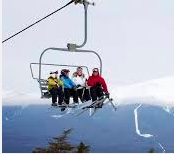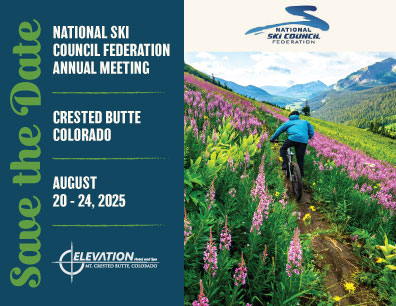 The past few years have seen a total revolution in the way lift tickets for skiing and snowboarding are sold. This paradigm shift is so extreme that anteing up full price is like paying top rack rate for a hotel room – something that can almost always be avoided.
The past few years have seen a total revolution in the way lift tickets for skiing and snowboarding are sold. This paradigm shift is so extreme that anteing up full price is like paying top rack rate for a hotel room – something that can almost always be avoided.
For daily tickets there are a wide variety of ways to buy online or in advance and save, and this varies dramatically from one resort to the next. But for many skiers, a better solution may be to never buy daily tickets at all. The very best deals in the industry are a new generation of season pass-like products, valid all winter and at multiple ski resorts. This has been driven by the trend of consolidation in the industry – and by a counterattack to consolidation, with independent resorts banding together for marketing clout.
Vail ski resort, CO
America’s most popular ski resort, Vail, CO, is just one of 11 major resorts included on the Epic Pass.
The short version is that these passes offer better values than skiers have seen in recent history and are now being marketed to travelers, a relatively new concept. For decades, season passes were mainly for high-volume users of a single resort, typically locals or those within the drive market. In sharp contrast, today’s passes are geared at those skiing as little as one week a year – wherever they may live. A prime example is the Epic Pass from Vail Resorts, which is priced so that it pays for itself in less than a week. It is so attractive just for a trip or two to the States that sales have spiked overseas and in dozens of countries where there are no Vail Resorts – or even snow.
“Our portfolio includes some of the most desirable destination resorts in the world, such as Vail, Breckenridge and Park City, and because the Epic Pass pays for itself in as little as five days – a single trip for many travelers – the popularity continues to grow, with 400,000 season passes sold around the world, including all 50 states and 80 countries,” said spokesman Russ Pecoraro.
These new generation passes differ in marked ways from one another, but what they have in common is that they all offer big potential savings for anyone taking more than a single weeklong ski trip annually. They also just went on sale for next season, and in general, are asking the lowest prices that will be available, with most increasing in mid or late April. Besides costing less now, some offer extra benefits for early bird buyers, such as being good for the remainder of this season, or for summer activities such as lift-served hiking and biking.
Here is a basic roundup of the early bird pass deals from the three major players, all released in the past two weeks:
Epic Pass: Vail Resorts typically offers its Epic Pass in several variations, including stripped down versions that omit holidays or particular resorts. But even the highest end, most fully featured pass is a bargain at $769 ($399 for kids), while variations get cheaper from there. There are still some individual ski resorts that charge nearly twice as much as this just for a pass limited to one mountain. The top tier Epic Pass includes unlimited skiing or riding, with no blackouts or exceptions, at eleven different mountains, including the nation’s two most popular ski resorts, Vail and Breckenridge, CO. It also covers the site of the 2015 World Ski Championships, Colorado’s Beaver Creek, and Utah’s Park City Mountain Resort, which will become the largest in the country next winter (see this story about the biggest expansion in recent ski history). All in all, the Epic Pass covers eight major and three smaller resorts in Colorado, Utah, California/Nevada, Michigan and Minnesota. It also includes several partner resorts abroad, and while not formalized yet for next season, this has typically included top tier destinations in Europe and Japan (2014-15 partners included Verbier, Switzerland and France’s Trois Vallees – the world’s largest ski resort). Bearing in mind that the priciest resorts in the portfolio, Vail and Beaver Creek, command as much as $159 for single day ticket, the pass can pay for itself in a typical 5-day ski week. It is even more attractive if one of the included resorts is near your home, for example, in Denver, Detroit, San Francisco, Salt Lake City or Minneapolis, and you also take a trip somewhere else annually.
Mountain Collective: This affiliation includes some of the biggest destination resort names in the ski resort world, such as Jackson Hole Mountain Resort, WY, Aspen/Snowmass, CO and Whistler/Blackcomb, BC. The Mountain Collective works differently than conventional season passes and includes two days of skiing or riding at each of the eight partner destinations, with a total of fifteen mountains (for instance, Aspen/Snowmass includes four choices). Buyers get sixteen days that can be split among the eight entities (two each). Pass holders also get a 50 percent discount on all additional days with no blackout dates, lodging discounts, and those buying at the early bird price of $369 ($99 for kids) also get a third bonus day at one destination of their choice (and two free days at Chile’s Valle Nevado this summer). So basically you get three days at the resort of your choice, and if this is all you use it for, in many cases you will still save money, while having the option to ski up to fourteen additional days free at the rest of the collection. The pass is especially good for those who plan to visit more than one destination, but between the bonus day and 50% discount, it can still be a bargain for even a single 5-day visit. The Mountain Collective includes Jackson Hole, WY: Aspen (Aspen, Buttermilk, Aspen Highlands and Snowmass), CO: Alta/Snowbird, UT; Mammoth Mountain, CA; Ski Banff/Lake Louise/Sunshine, AB; Squaw Valley/Alpine Meadows, CA; Whistler/Blackcomb, BC; and a new addition this season, Sun Valley, ID.
MAX Pass (Multi-Alpine Experience): This new alliance of three major ski resort operators, Boyne Resorts, Intrawest, and Powder Corp, is sort of a hybrid of Vail’s Epic Pass and the Mountain Collective. It replaces Intrawest’s Passport program and offers five days of skiing at each of the 22 partner resorts with no blackout dates, including Montana’s Big Sky, currently the largest ski resort in the nation. Unlike the other programs, it includes several premier East Coast resorts, most notably Killington and Stratton in Vermont, Loon, NH and Sugarloaf, ME. In the West it includes Utah’s Brighton and a trio of major Colorado resorts, Steamboat, Winter Park and Copper Mountain. Also represented are mountains throughout the Midwest, Northwest, South, and Canada. The current MAX Pass price is $699 with various discounts for teens, children, and youth, and it includes a possible 110 days of skiing, but easily pays for itself with a 5-day visit to any participant and 2-3 additional ski days. It is well suited of those who can drive to some of the included resorts on weekends, for example those living in the Northeast, and also take a more far flung ski trip each winter.
Other Options: While not yet announced for next year, the Ski Salt Lake Super Pass has not traditionally required far in advance purchase to realize savings. It offers considerable per day discounts to those skiing 3-10 days at any of the four very convenient major resorts surrounding Salt Lake City: Brighton, Solitude, Alta and Snowbird. The Powder Alliance is a coalition of mostly small and mid-sized resorts which reward each member’s season pass holders. The logistics are different from Mountain Collective or MAX Pass in that consumers buy an actual season pass to one of the resorts (thirteen this year, and expected to remain the same for 2015-16). They then get three free days at each other member, for a total of 36 potential bonus days with each pass purchased. Prices vary by resort, many of which are currently offering early bird deals for next season. The biggest member resorts are Crested Butte, CO and Snowbasin, UT, with additional mountains in Arizona, New Mexico, California, Montana, Idaho, Oregon, Washington and British Columbia.
Larry Olmsted, Forbes.com, March 18, 2015



